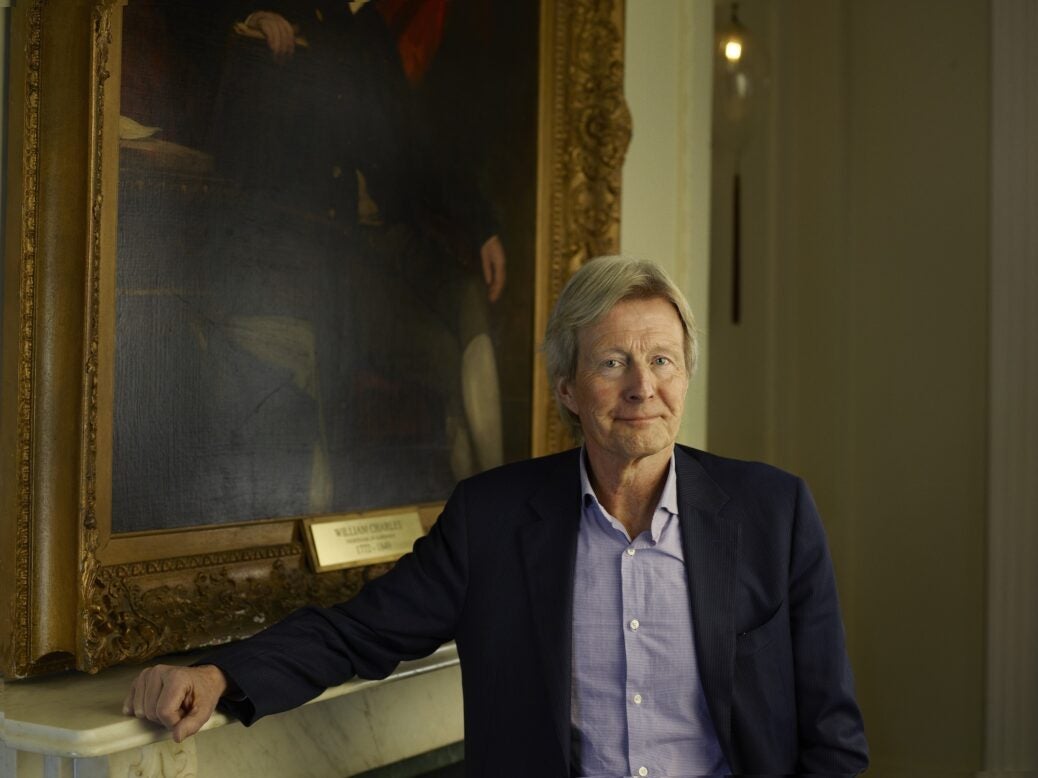
After winning the 2021 Spear’s Wealth Management Award for Lawyer of the Year – Reputation, Paul Tweed discusses his biggest successes of the past year
‘The year 2006 was really the first time I realised the speed and effectiveness of the internet,’ says Paul Tweed. That was the year in which the Belfast-based media lawyer managed to secure a rare apology from The National Enquirer on behalf of his client – Britney Spears, then 24 years old.
The US tabloid had published an article online and in print, internationally, which included untrue allegations about the state of the star’s marriage. Tweed concluded that the potentially global reputational ramifications called for a widely available digital response, rather than just a statement printed in its UK edition. ‘I watched the apology move from Ireland, across the UK, across Europe, into Australia, and then into LA, where I wanted it to go, and it was actually incredible – just a lightbulb moment for me,’ he says. ‘That was that moment that I realised: it’s not just the world changing, and it’s not just the media changing. The law needed to change.’
Since then, Tweed has seen how the power of the internet has made certain types of disinformation and misinformation even more damaging. It’s also harder to quantify that damage. ‘You can place a value on a broken arm; there are recognised guidelines for doing that. With defamation, there’s not, and it’s very, very difficult.’
This was recently brought into focus by the sheer impact of a single tweet about one of Tweed’s clients. On 23 December 2019, Dr Christian Jessen, who is known for his TV work, wrote to his 311,000 Twitter followers that Arlene Foster, Northern Ireland’s former first minister, was having an extramarital affair. The false allegation was deemed by the presiding judge an ‘outrageous libel’ against the deeply religious politician. She was awarded damages of £125,000, a record for a defamatory remark posted on Twitter.
Tweed, who splits his time between London and Belfast, operates across multiple jurisdictions. As some large tech companies have set up headquarters in Dublin, his US clients are often able to seek recompense in the Irish courts. Previously, such firms would be covered by the US Speech Act, which was brought in to prevent US citizens suing US companies abroad. ‘It was Facebook Ireland, an Irish company, Google Ireland, an Irish company. But the Speech Act was gone,’ he says. ‘They hadn’t thought that one through.’
His next big challenge will be pinning down where other global tech and media companies are operating from in specific instances. ‘These big conglomerates are making it very difficult to pinpoint who is responsible, who is liable.’ Luckily, he is persistent. ‘If you do not have the backbone to keep going, and you don’t have the judgement… media law is not for you.’
‘We’re at a very pivotal moment in terms of society,’ Tweed adds. ‘When George Orwell wrote 1984, he talked about “Big Brother”. In 2024, the way things are going at the moment, our data is going to be in the hands of the social media giants. I think George Orwell’s predictions are going to be almost quite quaint, looking back, compared to what actually has developed’.
Image: Sebastian Nevols






